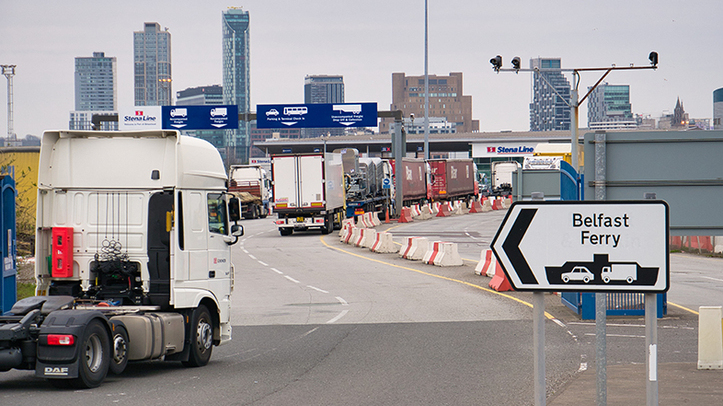Organisations involved with animal care have given a cautious welcome to the Windsor Framework, designed to replace the Northern Ireland Protocol governing movement of goods and animals between the region and the rest of the UK.
The proposals include a new UK internal market system – a “green lane” – whilst still requiring full EU process for third country goods moving into Ireland – a “red lane” – while also removing the Protocol requirement for an individual certificate for each movement of a pet into NI from GB. For Northern Ireland pet owners, there will be no requirements of any kind while for GB pet owners travelling to NI, and not travelling on to Ireland, pet owners will just need to provide confirmation of a microchip.
British Veterinary Association (BVA) president Malcolm Morley said: “On first reading, the ‘new deal’ for Northern Ireland looks positive for vets, farmers and agri-food businesses, as well as pet owners. Throughout the UK, the veterinary profession is managing with workforce shortages and so it’s encouraging that new proposals seek to minimise the need for vet intervention as animals and goods move across the Irish Sea.
“The new rules will be a particular relief to pet owners who regularly travel between Great Britain and Northern Ireland with their animals. The rules will mean less paperwork for vet practices too and will help reduce over treatment.”
The National Office for Animal Health (NOAH) described the framework document as a “very positive step forward”, but pointed out that the specific issue of continued access to veterinary medicines in NI remains, as no change has yet been made to the existing temporary agreement. In the longer term, this means approximately 50% of the current veterinary medicines will not be available on the NI market, according to NOAH.
Chief executive Dawn Howard said: “We are pleased to see that this has been recognised by the UK Government in the Framework paper which states that, as things stand, more than half of product lines remain at risk. We thank NOAH members for their diligent work in providing this evidence, and welcome the Government’s recognition that the only practical solution will be the development of a long term solution, as with human medicines, to guarantee the existing and long-established flows of trade between GB and NI for our sector.”
The RSPCA welcomed the removal of the virtual border down the Irish Sea, saying it will cut down queues and reduce requirements for documentation such as a pet passport for those travelling with a pet to Northern Ireland, but warned that as long as the UK Government fails to enact the proposed Kept Animals Bill, animal welfare will still be compromised.
The organisation maintained that the new measures could make it easier for unscrupulous dealers to transport too-young puppies, pregnant bitches and dogs with cropped ears into Great Britain, but allowing the Government’s long-awaited Kept Animals Bill to pass into law would address this.
RSPCA head of public affairs David Bowles said: “The Northern Ireland Brexit deal is good news for those going on holiday with their pet, but we have concerns about criminals now exploiting reduced controls in the puppy trade.
“Without counter-balancing legislation – namely, the proposed, and long-delayed Kept Animals Bill – lower controls without enforcement could leave Great Britain wide open to problematic animal imports of puppies, dogs with cropped ears and pregnant bitches, contributing to compromised animal welfare.
“So while the Prime Minister has found a solution to one long standing issue, the deal will actually exacerbate certain animal welfare problems, due to the UK Government’s lack of action on other, complementary legislation.”



